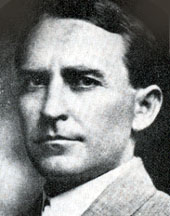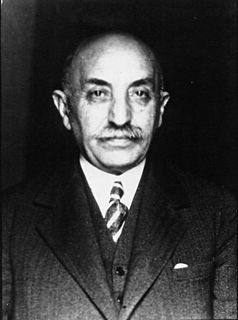
The Communist Party of Greece is a Marxist–Leninist political party in Greece. Founded in 1918 as the Socialist Labour Party of Greece, it is the oldest political party in modern Greek politics. The party played a significant role in the Greek resistance and its membership peaked in the mid-1940s. It was the instigator of the Greek Civil War, but ended on the losing side and was banned until 1974.

The European Parliament election of 2004 in Greece for the election of the delegation from Greece to the European Parliament took place on June 13. The election system used in Greece was a party-list proportional representation with a 3% threshold for any party. The number of seats allocated to Greece was 24.
This article gives an overview of liberalism in Greece. It is limited to liberal parties. The sign ⇒ denotes another party in that scheme. For inclusion in this scheme it isn't necessary so that parties labeled themselves as a liberal party.

The 1936 United States House of Representatives elections was an election for the United States House of Representatives in 1936 which coincided with President Franklin D. Roosevelt's landslide re-election. Roosevelt's Democratic Party gained twelve more net seats from the Republican Party, bringing them above a three-fourths majority. This was the largest majority since Reconstruction. The last time a party won so decisively was in 1866.

Georgios Kondylis was a general of the Greek army and Prime Minister of Greece. He was nicknamed Keravnos, Greek for "Thunder" or "Thunderbolt".
The People's Party was a conservative and pro-monarchist Greek political party founded by Dimitrios Gounaris, the main political rival of Eleftherios Venizelos and his Liberal Party. The party existed from 1920 until 1958.

Ioannis Rallis was the third and last collaborationist prime minister of Greece during the Axis occupation of Greece during World War II, holding office from 7 April 1943 to 12 October 1944, succeeding Konstantinos Logothetopoulos in the Nazi-controlled Greek puppet government in Athens.

Panagis Tsaldaris was a Greek politician and the 48th Prime Minister of Greece. He was a revered conservative politician and leader for many years (1922–1936) of the conservative People's Party in the period before World War II. He was the husband of Lina Tsaldari, a Greek suffragist, member of Parliament, and the Minister for Social Welfare.

The European Parliament election of 1994 in Greece for the election of the delegation from Greece to the European Parliament took place on June 12. The election system used in Greece was a party-list proportional representation with a 3% threshold for any party. The number of seats allocated to Greece was 25.
The Middleton and Prestwich by-election, 1940 was held for the Middleton and Prestwich constituency on 22 May 1940.
The Preston by-election, 1940 was a parliamentary by-election held for the British House of Commons constituency of Preston in Lancashire on 29 September 1940. The seat had become vacant on the death of the Conservative Member of Parliament Adrian Moreing, who had held the seat since the 1931 general election.
The Combined Scottish Universities by-election, 1936 was a by-election held from 27 to 31 January 1936 for the Combined Scottish Universities, a university constituency of the British House of Commons.
The Greenock by-election, 1941 was a parliamentary by-election held on 10 July 1941 for the British House of Commons constituency of Greenock in Renfrewshire, Scotland. Hector McNeil was elected unopposed to succeed Robert Gibson.

Metaxism is a totalitarian nationalist ideology associated with Greek dictator Ioannis Metaxas. It called for the regeneration of the Greek nation and the establishment of a modern, culturally homogenous Greece. Metaxism disparaged liberalism, and held individual interests to be subordinate to those of the nation, seeking to mobilize the Greek people as a disciplined mass in service to the creation of a "new Greece."
The All People Front was an electoral coalition formed between the Communist Party of Greece, the Common Front of Workers, Farmers and Professionals and the United Front of Workers and Peasants. It participated in the elections of 1935 as Communists and Allies and took 9,59% without electing any MPs.
The Hellenic Agricultural Party was a political party in Greece.
The National Democratic Party, later renamed National Radical Party, was a political party in Greece in the 1920s led by Georgios Kondylis.
The National Reform Party was a political party in Greece in the 1930s.
The Old Democratic Union of Crete was a political party in Greece in the 1930s.













